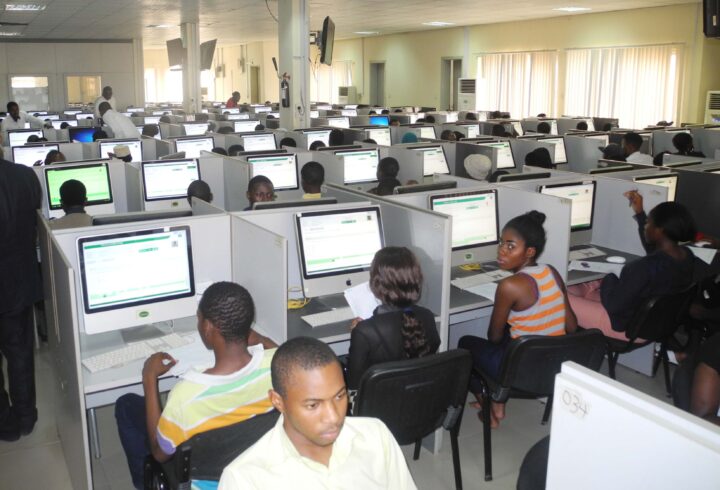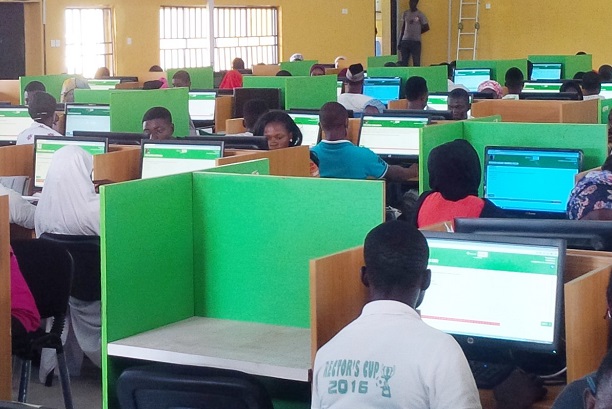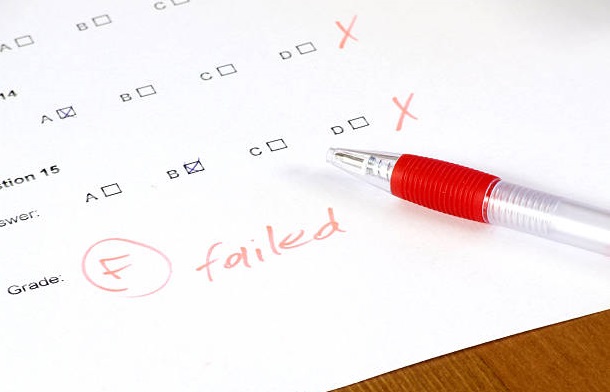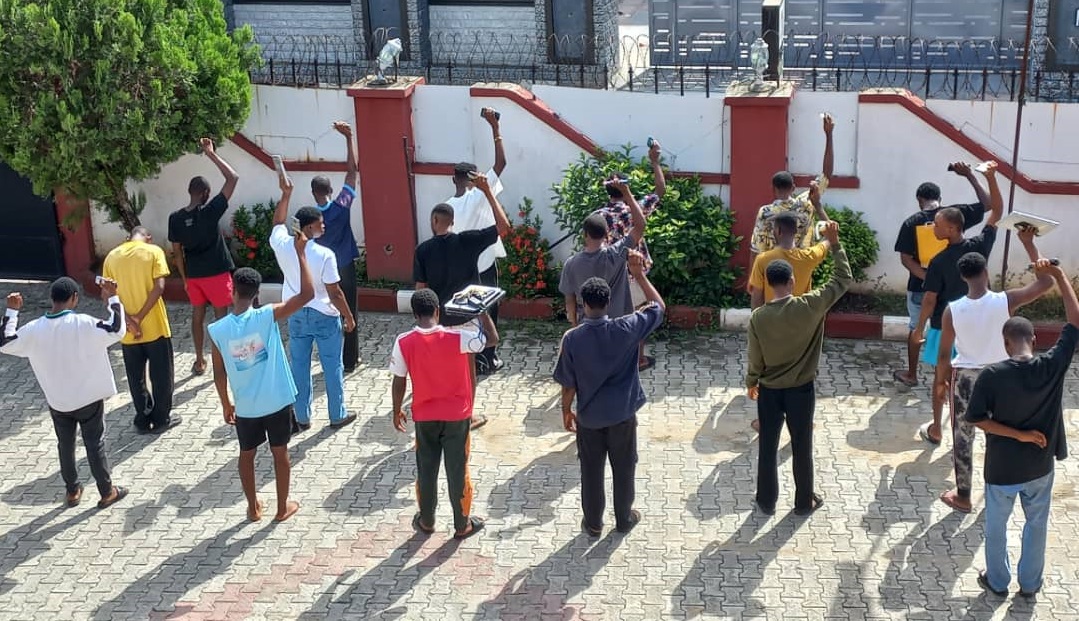An illustrative image of students writing the UTME.
The Joint Admissions and Matriculation Board (JAMB) says 364 visually impaired candidates will sit for the 2023 unified tertiary matriculation examination (UTME) in 11 centres across Nigeria.
Peter Okebukola, chairman, JAMB equal opportunity group (JEOG), spoke while giving the highlights of the 2023 exam on Thursday in Abuja.
Okebukola commended Is-haq Oloyede, JAMB registrar, for the special arrangement for this class of Nigerians.
He said the goal of JAMB under the leadership of Oloyede was to make sure that no eligible candidate irrespective of their disability was prevented from writing the exam.
Advertisement
He said that from 2017, JEOG had processed nearly 2,600 applications for the UTME and more than a third were offered admissions to study the courses they chose in Nigerian universities.
He said that the measure had been regarded as a good model for Africa.
“The mode of examination administration is blended-use of personal computers (PCs) and use of the traditional braille slate and stylus/typewriters in writing answers to questions that are read out by a subject expert,” NAN quoted him as saying.
Advertisement
“The blind candidates take the same test items as those who are not blind.”
Okebukola who is also the chairman of the governing board of the National Open University of Nigeria (NOUN) stated that from 2024, approval has been given by JAMB for the gradual migration to the full computer-based test (CBT) mode customised for blind candidates.
He said that a pilot study would be conducted later this year to test this mode while also providing options to candidates who opted for full braille, full CBT, and full read-aloud modes.
“There are exciting times ahead for blind candidates and others with disabilities in realisation of the dream of Professor Is-haq Oloyede for equal opportunity,” he said.
Advertisement
“So far, a good number of blind candidates processed through JEOG have secured admissions to federal, state, and private universities, polytechnics, and colleges of education.
“In 2019, of the 390 candidates, a total of 175 (44.8 percent) were given admissions. This was unprecedented in the history of admission of such a category of students into the Nigerian higher education system.
“In 2020, 89 of the 351 blind candidates (25 percent) that sat for the UTME got admissions.
“In 2021, a total of 110 blind candidates were given admissions, out of the 332 that sat for the UTME.
Advertisement
“This 33 percent admission of blind candidates to higher education in an annual cohort is unprecedented in the African higher education system,” he said.
He added that in 2022, 139 candidates out of the 364 candidates that took the UTME (38 percent) were admitted to the higher institutions of their choice.
Advertisement
He said that five of the blind candidates scored more than 270 in the 2022 UTME, while 92 scored more than 200.
“When compared proportionally with the non-blind candidates, the blind candidates are doing well, if not better than the visually unimpaired candidates,” Okebukola said.
Advertisement
“The 2023 exercise is taking place in 11 centres nationwide. This is in the interest of bringing the venue of the examination closer to the candidates, especially with the security situation in the country.
“The centres are coordinated by seasoned academics and university administrators. The total number of candidates is 364.”
Advertisement
Okebukola added that JEOG was already putting into practice, a strategic plan meant to gradually increase the ICT component of the administration of the UTME to be in line with the improvement in ICT usage for the education of the blind in tertiary institutions.
The exam for the blind will take place between 27 and 29 April and it will be supervised by JEOG.
Add a comment






